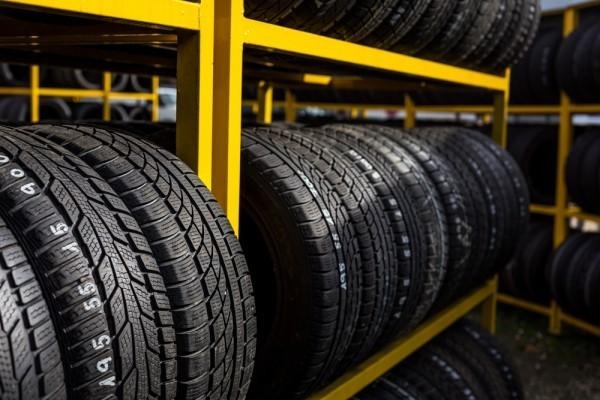Garage 101: Track Day Preparation - Tires
Previously I talked a bit about what you need to do to your brakes before you take your car out to the track for your first track day. If you missed that installment, it's the most imprint thing in getting ready to go to the track, so read it. After you get your brakes sorted out, you need to turn your attention to your tires. You don't need fancy slicks or racing tires, any tire will do so long as they are in good shape and not showing any cords. If your tires are corded or excessively worn, don't go to the track until you have them replaced.
Other than overheating your brakes, the next most common way to crash your car and potentially hurt yourself and others is to hit the track with worn tires that might go flat or leave you spinning out of control when least expected. As I said before, any tire will work fine be it an all-season tire or a summer performance tire. If you are buying new tires to get ready for your track day, not all performance tires are the same even if they have the same tread wear rating.
Tread wear ratings are a bit of a farce in the tire industry since there is no common way of measuring that number. For instance some tire makers will list a 200 tread wear on their tires just to meet strict guidelines in some autocross and road racing classes that require no more than a specific tread wear rating. What that means is that some tires with a 200 tread wear will wear down much faster than others and some will have significantly more grip than others.
Another thing to think about when buying tires is that not all tire widths are the same and by that I mean not all 245 profile tires are the same physical width. This is another place where manufacturers are known to fudge the numbers a bit to meet class guidelines. The best way to learn what fits and works best is to find a forum for autocrossers or road racers and read. I guarantee there will be hordes of posts about tires.
It's hard to recommend a tire brand, they are like shoes and what works for one person doesn't always work for the next. Buy tires considering the weight of your car, your driving style, and your budget. Just because a tire doesn't work well for a Mustang driver with a 3,800 pound car doesn't mean the same tire won't be fantastic for a 2,800 pound Miata. This is where forums are your friend.

My strong recommendation is that novice drivers looking for a set of track tires and wheels start on the cheap side. Tires are a huge expense and are one of the most costly aspects of frequently tracking your car. TireRack makes their own brand of performance wheels that lots of racers use that are worth a look. On the higher end you will see lots of Enki RPF1 and similar wheels at the track thanks to light weight and high strength.
I've never bene too hung up on wheel weight personally. Sure, I could probably be slightly faster on a set of four wheels that are 20 pounds lighter than the cheap wheels, but wheels are consumables too. You will break and crack them, breaking a $100 wheel is much easier on the wallet than breaking a $400 wheel.
While there is no rule against starting on a semi-race tire typically called R-comps, it's generally understood that those tires take a bit more skill to master than starting with a summer performance tire. Many R-comps (the two big ones here are Nitto NT01 and the Toyo R888) don't give you as much of a line between grip and slip as a street performance summer tire does. It takes some skill to probe those limits and a novice typically lacks those skills. I've learned from experience that the line between gripping and spinning is at times very thin with any tire and more so on an R-comp.
You'll notice if you shop for R-comps that a lot of places offer shaving and heat cycling services. Heat cycling is supposed to make the tires last longer and shaving them reduces the tread depth to improve handling and grip. I've never used either service on any of the R-comps I've run, I want all the tread I can get since tires are so expensive even if it means I'm slightly slower. Heat cycling always seemed like a waste of money to me since I'm not racing and a few seconds here and there from my lap time really doesn't matter. If you have the loot, there is nothing wrong with either of those options. You can drive to and from the track on R-comps if you want, they are street legal. However, they wear quickly and if you get caught in rain you may regret that decision.
That's tires in a nutshell, you can literally write a book on this topic and this is hardly an exhaustive list, we are only talking basics here for novices. The key to having fun no matter what tires you are using is to drive within your limits, listen to the tires, AND more importantly listen to your instructor. Overdriving your car and tires is asking for an accident.
Photo Credit: ShutterStock
